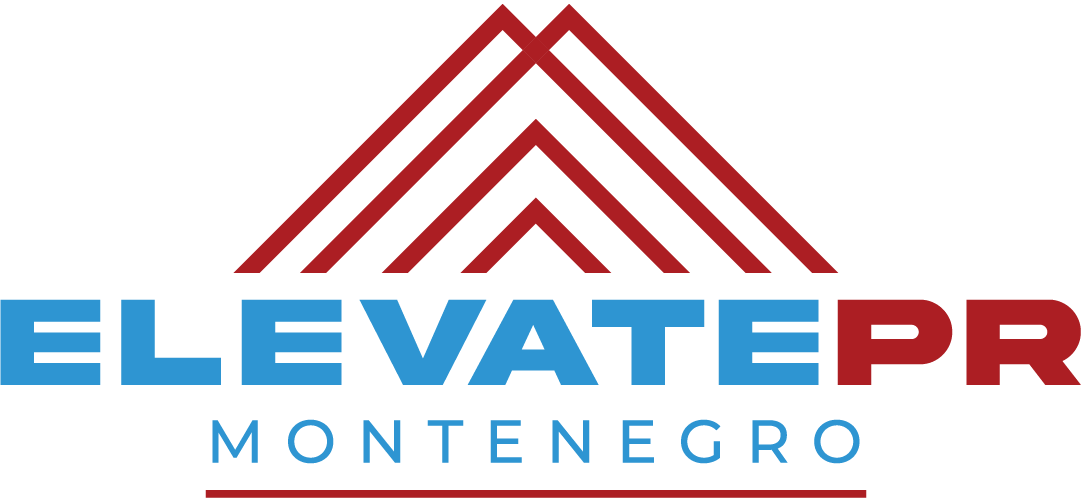Montenegro’s natural beauty is its brand, its economic engine, and its strategic soft power. Yet beneath its reputation for pristine nature lies a structural challenge: waste management, wastewater treatment, and environmental services remain underdeveloped, fragmented, and inconsistent across municipalities.
EU accession changes everything.
As Montenegro aligns with the EU environmental acquis, waste, water, and pollution-control systems will undergo the largest regulatory transformation in the country’s modern history. For investors, engineering firms, and ESG-focused businesses, this is not just a challenge — it is a new industry waiting to be built.
Environmental services may become one of Montenegro’s highest-growth economic sectors in the next decade.
EU environmental acquis: The regulatory shock that drives investment
Montenegro must comply with more than 200 EU directives and regulations in environmental protection alone. The most impactful include:
- Waste Framework Directive
- Landfill Directive
- Circular Economy Action Plan
- Water Framework Directive
- Urban Wastewater Treatment Directive
- Industrial Emissions Directive
- Air Quality Standards
- Environmental Impact Assessment (EIA) Directive
These obligations are not theoretical.
They require:
- new infrastructure
- modern treatment facilities
- monitoring systems
- reporting platforms
- environmental engineering services
- professionalised waste operators
- specialised technical expertise
For Montenegro, this means billions of euros of investment across waste, water, and environmental services — much of it co-financed by the EU, EBRD, and EIB.
Waste management: From municipal strain to private-sector growth
Montenegro currently faces structural waste-management gaps:
- limited recycling capacity
- mixed waste collection dominant
- unregulated dumping still present in rural zones
- ageing vehicles and equipment
- lack of modern material-recovery facilities
- insufficient landfill compliance with EU hygiene standards
The EU path requires systemic change.
This opens investment doors in:
A) Waste-collection & logistics modernisation
- modern waste trucks
- GPS tracking and digital route optimisation
- container systems and underground bins
- transfer stations
B) Material recycling & sorting facilities
- plastics, paper, metal, glass
- high-tech optical sorting
- packaging recycling under EU EPR (Extended Producer Responsibility)
C) Construction & demolition waste recycling
A high-potential segment due to real-estate activity.
D) Hazardous waste treatment
Necessitated by EU industrial and medical waste regulation.
E) Landfill rehabilitation
Old sites will require closure, engineering, and environmental remediation — a major business opportunity.
Wastewater, drainage & coastal protection: Meeting EU water standards
The EU Water Framework and Urban Wastewater Treatment Directives require Montenegro to modernise water systems:
- municipal wastewater plants
- sewerage networks
- stormwater drainage
- infiltration prevention
- sludge management
- coastal pollution control
Cities such as Podgorica, Nikšić, Budva, and Ulcinj already require upgrades or full new plants.
Investment potential:
- EPC contracts
- O&M concessions
- digital water-quality systems
- SCADA integration
- engineering consulting
Tourism-heavy coastal regions face the strongest regulatory pressure — and the strongest investor interest, because clean coasts directly protect economic value.
The circular economy: Turning waste into economic input
EU rules force Montenegro to transition from “collect-and-dump” toward a circular economy model, where:
- waste becomes raw material
- recycling becomes industry
- processed materials reenter manufacturing
- landfill becomes the last resort
Strategic circular-economy opportunities:
- composting and bio-waste treatment
- biogas and bioenergy production
- plastics recycling
- glass repurposing
- industrial symbiosis clusters in free zones
- repair and remanufacturing platforms
Circular-economy firms in the EU have margins comparable to mid-tech manufacturing.
Montenegro can build this ecosystem almost from scratch.
ESG, compliance & environmental engineering: A new professional sector
As environmental regulation tightens, demand for professional services explodes:
Required new roles:
- environmental engineers
- EIA consultants
- ESG auditors
- ISO standards implementation experts
- waste-management advisors
- marine pollution specialists
- water-quality laboratories
- climate adaptation and resilience planners
This generates high-skilled employment and attracts foreign engineering firms.
EU & IFI financing: The largest funding pipeline after transport & energy
Environmental infrastructure becomes one of Montenegro’s top recipients of:
- EU pre-accession funds (IPA)
- Western Balkans Investment Framework
- EBRD green economy financing
- EIB water and waste loans
- UN environmental programmes
- climate-focused grant mechanisms
Most projects will use blended finance — making them highly bankable with low investor risk.
Green public procurement & PPP: New models for municipal services
Municipalities cannot fund full compliance alone.
They need private partners.
This creates openings for:
- PPPs in waste collection and processing
- operating concessions for wastewater plants
- private recycling plants under long-term municipal contracts
- circular-economy public–private platforms
EU rules incentivise transparent procurement and long-term investment cycles.
Challenges that must be overcome
Montenegro’s environmental transformation will not be easy. Key challenges include:
- municipal governance limitations
- slow permitting
- incomplete cadastre and land-management issues
- variable technical capacity
- rural waste-collection gaps
- illegal dumping
- ageing water networks
These issues require reform — but also represent market demand. The very weaknesses create investment opportunities for companies that can deliver efficient, compliant systems.
Why environmental services will become a core economic sector
By 2030, as Montenegro moves closer to EU membership, environmental infrastructure will become one of the country’s most important sectors — rivaling energy, tourism, and construction in investment volume.
Strategic benefits:
- healthier environment
- protection of Montenegro’s tourism asset
- alignment with EU environmental norms
- improved municipal governance
- strong ESG profile for investors
- new technical industries and jobs
Montenegro’s environmental upgrade is not optional — it is mandatory under EU law.
But this obligation becomes a multi-billion-euro business opportunity for private sector investors, engineering companies, environmental operators, and technology providers.
Elevated by www.clarion.engineer


